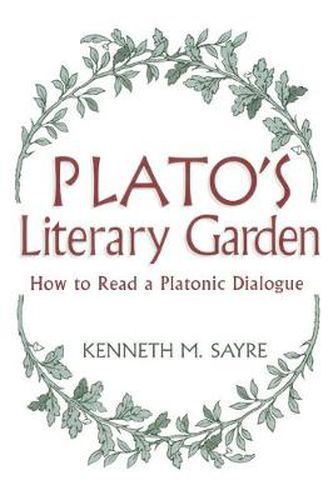Readings Newsletter
Become a Readings Member to make your shopping experience even easier.
Sign in or sign up for free!
You’re not far away from qualifying for FREE standard shipping within Australia
You’ve qualified for FREE standard shipping within Australia
The cart is loading…






Plato’s dialogues are universally acknowledged as standing among the masterworks of the Western philosophic tradition. What most readers do not know, however, is that Plato also authored a public letter in which he unequivocally denies ever having written a work of philosophy. If Plato did not view his written dialogues as works of philosophy, how did he conceive them, and how should readers view them? In Plato’s Literary Garden, Kenneth M. Sayre brings over thirty years of Platonic scholarship to bear on these questions, arguing that Plato did not intend the dialogues to serve as repositories of philosophic doctrine, but instead composed them as teaching instruments.
$9.00 standard shipping within Australia
FREE standard shipping within Australia for orders over $100.00
Express & International shipping calculated at checkout
Plato’s dialogues are universally acknowledged as standing among the masterworks of the Western philosophic tradition. What most readers do not know, however, is that Plato also authored a public letter in which he unequivocally denies ever having written a work of philosophy. If Plato did not view his written dialogues as works of philosophy, how did he conceive them, and how should readers view them? In Plato’s Literary Garden, Kenneth M. Sayre brings over thirty years of Platonic scholarship to bear on these questions, arguing that Plato did not intend the dialogues to serve as repositories of philosophic doctrine, but instead composed them as teaching instruments.